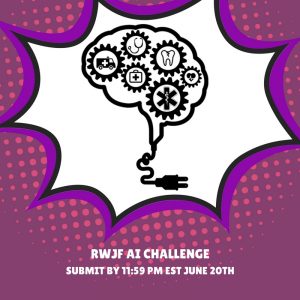
When it comes to navigating healthcare and making decisions about your health, and the health of loved ones, there is no yellow brick road. Even the National Committee for Quality Assurance (NCQA), a leading national healthcare nonprofit, could only analyze 1,000 of over 1,400 private healthcare policy options with myriads more in the public arena. Navigating a health care plan, or not, is just the beginning of your healthcare journey.
Let’s say you find a health plan you like, and you get sick. You have to locate the right doctor that works for you, struggle through complicated referrals, tabulate the exact bottom line of these costs, find a pharmacy, perhaps grab a second opinion, and repeat this process every time you get sick.
Our healthcare system offers expansive options that balance both exceptional care and value; but the abundance of choices can also obscure our ability to make the best decision for ourselves. The complex nature of the healthcare market can impact our free time, our ability to assess the situation correctly, and potentially lead to poor health outcomes and stifling costs.
With the advent of advanced and robust AI platforms in marketing, law, and other sectors, we’re observing the vast opportunities for AI solutions in healthcare decision making. As medicine becomes more specialized, talent bottlenecks are developing and leading to increased professional strain on healthcare providers and consumers. To bring clarity and personalization to the healthcare industry, the Robert Wood Johnson Foundation is teaming up with Catalyst @ Health 2.0 to foster change in this space.
The RWJF AI & The Healthcare Consumer Challenge is calling all innovators to create AI enabled tools that support well-informed health decisions. By accelerating image recognition, data analysis, and pattern detection, we can start to remove harmful elements of human error from our systems. With predictive analysis, deep learning, and other AI enabled tools, innovators have the opportunity to help healthcare consumers make more informed and accurate decisions about the best health pathways to explore. With $100,000 in total challenge prizes, the most innovative solutions can bring attention to the benefits of AI in the consumer domain, as well as gain funding to continue tech development. Applicants can submit solutions such as tools to help find the ideal physician, estimate the cost of a health plan, or chatbots that track daily health decisions; it is up to YOU to do your part in solving a multi-billion dollar problem that affects all Americans.

The two-phase challenge begins…now!
Pre-register here with the first phase of applications due before 11:59 PM EST on June 20th. Five semi-finalists will be awarded $5,000 each to continue developing their solution into a functioning prototype or working application. After another round of evaluation in Phase 2, three finalists will be selected to move on to the live pitch portion of the challenge. These finalists will have the opportunity to present their solution to a captivated audience of industry leaders at Health 2.0’s Annual Fall conference.
Along with several other promotional opportunities for you and your team, a grand prize of $50,000 awaits the most innovative and insightful AI enabled solution.
Check out the challenge website to learn more and pre-register to apply to the RWJF AI & the Healthcare Consumer Challenge by 11:59 PM EST on Wednesday, June 20th!
John El-Maraghy is a Program Associate at Catalyst @ Health 2.0.
Categories: Uncategorized










So, do we really need AI to pick a Primary Physician for a person who can barely arrange their nutritional needs for the following day. The following is engraved in stone at the President Franklin Roosevelt monument on the Tidal Basin in Washington, D.C.:
.
Said during the Great Depression, “I see one-third of a nation ill-housed, ill-clad and ill-nourished. The test of our progress is not whether we add more to the abundance of those who have much; it is whether we provide enough for those who have so little.” This now applies to our priorities for the poverty of mind and spirit that plague our nation’s commitment to our neighbors, community by community.
.
The RWJF folks would do well to learn about “collective-thrust” projects for improving the level of our Nation’s SOCIAL CAPITAL, community by community. In the meantime, it is a sad commentary that someone perceives the need to build an app for a person to arrange ecologically accessible healthcare. The Roosevelt monument also recalled the following: “In these days of difficulty, we Americans everywhere must and shall choose the path of social justice, the path of hope, and the path of love toward our fellow man.”
Next to the Roosevelt monument is the one for The Reverend Doctor Martin Luther King, Junior. Etched in bright white stone, he said: “The ultimate measure of a man is not where he stands in moments of convenience and comfort, but where he stands at times of challenge and controversy.” Hmmm…..social justice….hope….path of love! Social Capital is really not a complicated commitment when it applies to the Common Good within each community, especially its equitably available healthcare.